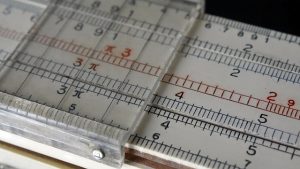
With so much information out there about how to best approach the GRE, you may not be sure what’s the best way to really succeed.
Luckily, we’re here to help you separate the wheat from the chaff. We’ve identified over 30 critical GRE study tips for preparing for and taking the GRE to help you be smart and strategic at every step of the way! These essential GRE strategies will take you all the way through the essential foundations of preparation, all the way to test day success.
Foundational Principles for GRE Prep
These are the foundational GRE strategies for success on the test. They’re meant to help you ensure that your studying is highly effective and gets you to your goal score as quickly as possible!
#1: Use Realistic Practice
The absolute best thing you can do for yourself when it comes to GRE preparation is to use practice materials that closely mimic the real GRE. The best materials will be official materials from ETS itself, because they are the ones who make the test and their materials are most like the real thing!
You can get some official practice materials for free from ETS, including the PowerPrep II software, which includes two full free GRE practice tests. As most people will take the exam on the computer, these tests are the best for mimicking the full exam experience.
For more on official practice, see our total guide to ETS practice tests and material.
Quick side note: we've created the world's leading online GRE prep program that adapts to you and your strengths and weaknesses. Not sure what to study? Confused by how to improve your score? We give you minute by minute guide.
You don't NEED a prep program to get a great GRE score. But we believe PrepScholar is the best GRE prep program available right now, especially if you find it hard to organize your study schedule and don't know what to study.
Click here to learn how you can improve your GRE score by 7 points, guaranteed.

#2: Set a Goal Score
Having a goal makes preparation more meaningful because you’ll have something to work towards. It also helps you to get the scores you need for the programs you’re interested in.
In general, your goal score should be 1-2 points higher than the highest average or middle 50% score reported of all the programs that you are interested in. Since the GRE is only one part of your application, you won’t actually gain as much by having a score way above the range of students they usually admit (a possible exception being school-awarded scholarships, which sometimes take GRE score into account). See more advice on setting a GRE goal score in our guide to what makes a good GRE score.
#3: Identify the Most Important Section for You
For the vast majority of programs, one section (either Verbal or Quantitative) will be most important. As you might imagine, math, science, and engineering-focused programs will usually care more about your Quant score, while humanities-focused programs care more about your Verbal score. For some programs (like some in the social sciences) both scores may be considered important. By figuring out what is and isn’t important, you can better focus your preparation efforts.
#4: Create a Personalized Study Program
The way you prep for the GRE shouldn’t be exactly the same way as anyone else preps for the GRE (unless they happen to have your exact strengths and weaknesses). You’ll want to target your studying to focus more on the areas you’re weak. There are a few different kinds of GRE weaknesses you can target:
- Content weaknesses: These are weaknesses in your underlying understanding of the concepts the GRE tests. For Quant, this would be any math topic areas you’re weak in (like, say, probability). For Verbal, this could be a weak vocabulary or discomfort with complex passages.
- Format weaknesses: These are weaknesses that have to do with the specific test format. If you struggle with a particular question type, like quantitative comparison or sentence equivalence, that’s a format weakness and you need to build strategies to address those specific question types.
- Strategy weaknesses: These are weaknesses that have to do with your broader test-taking strategy and approach. It includes things like running out of time on sections, forgetting to answer every question, not reading questions closely enough, and so on.
Most people will have a handful of weaknesses of various types to target. If you don’t tailor your studying specifically to work on your weaknesses and take advantage of your strengths, you’re not using time very efficiently. What’s the point of doing an entire practice Verbal section every single day if you’re getting all of the sentence equivalence and sentence completion questions correct every single time? Clearly you need to focus in on the passage-focused questions.

#5: Keep the Test in Perspective
Don’t make the test into a bigger (or smaller) deal than it is. The truth is that GRE scores are only one part of your overall application to grad school. A high score isn’t enough to get you in if you don’t meet the school’s other criteria, and just so long as you can meet an acceptable baseline standard on your GRE for that school, you’re good. So don’t sweat it too much just so long as you’re confident that you can make that baseline score.
Of course, this does mean that you need to reach a certain baseline GRE score to be really considered at a school. Basically, the GRE is used to weed out low scorers (with a “low” score being totally dependent on the program and school), but isn’t ever going to be enough to get you admitted on its own, even if you got a 170 Q/170 V.
#6: Remember That It Doesn’t Matter How You Get the Answer
ETS only cares that you got the right answer—they don’t care how you got it. Since almost all of the questions on the GRE are multiple choice, this means there are a huge number of strategies you can deploy to get the right answer, from plugging answers in, to the process of elimination, to straight-up educated guessing (again, ETS doesn’t care how you get the answer)! So don’t feel timid about using every tool at your disposal to answer questions.

GRE Study Tips: Preparing for the Test
We’ve gone over the foundational principles to keep in mind throughout the GRE process. Now we’ll discuss some of the best GRE strategies for studying out there.
GRE Prep Tips For the Whole Test
These tips apply to the entire test.
#7: Learn GRE Test Format Inside and Out
You don’t want to be surprised by anything you encounter on test day. To that end, you want to learn everything there is to know about the format of the test: how many sections there are, what order they come in, what each section covers, and what question types you can expect to encounter.
Luckily, we have a complete breakdown of all this information in our guide to the GRE format!
#8: Get Familiar With the Directions!
If you know the directions inside and out, you won’t need to waste time reading them on test day…and you don’t have to worry about getting confused and answering something incorrectly because you didn’t understand the directions! This GRE tip will save you time at the very beginning of each section.
#9: Analyze Your Mistakes
When you complete practice problems and tests, it’s critical that you don’t just blow by your mistakes. They are actually the most important pieces of information you can get from practice! Really dig deep on why you got the question wrong and what weaknesses it reveals, and then target those weaknesses in your studying!

#10: Pace Yourself
Being able to get every question on the GRE right doesn’t do you much good if you can’t answer all the questions within the time limit. So, practice staying on track by timing yourself during practice sections. Both Verbal and Quant sections have 20 questions per section. Verbal sections have a 30-minute time limit, giving you 1:30 per question. Quant sections have a 35-minute time limit, giving you 1:45 per question. Obviously, there will be some variation in how long questions take, but you want to practice staying on track.
#11: Use Process of Elimination
When you read a question and the correct answer doesn’t immediately jump out at you, it can be easy to become demoralized or feel panicked and lost. But if you hone your process-of-elimination skills, you’ll be able to pick off wrong answers one by one. Even if you can’t absolutely determine the correct answer this way, you’ll at least make your odds of guessing correctly that much higher for each answer you can eliminate.
So when you see a question and you aren’t sure what the answer is, go through the choices and eliminate ones that are definitely wrong.
#12: Practice With Full-Length Tests
While it can be difficult to find the time to sit down and take a full-length GRE practice test, it’s important that you do sit through an entire practice test at least once before test day. Breaking up practice tests into little sections allows you time to rest and recharge between them, which isn’t how you’ll actually encounter the test in the wild. Taking a complete practice test helps you prepare for just how fatiguing it can be to test for almost four hours in a row—and forewarned is forearmed!
Want to improve your GRE score by 7 points? We have the industry's leading GRE prep program. Built by world-class instructors with 99th percentile GRE scores, the program learns your strengths and weaknesses through machine learning data science, then customizes your prep program to you so you get the most effective prep possible.
Try our 5-day full access trial for free:

GRE Study Tips For Verbal
These two GRE strategies will help you really improve your Verbal score:
#13: Study Vocab in Context
While drilling vocab with flashcards has its benefits, you also need to learn vocab in context. This means figuring out how to use the words you are actually learning in sentences correctly. This way you will get a sense of how you might actually encounter them on the GRE.
#14: Read Complex Texts
One of the most important things you can do for yourself to prepare for the Verbal section is to read complex texts on a variety of subjects. This will help you learn how to quickly parse the difficult and dense passages you’ll see on the GRE, as well as give you exposure to lots of complex vocab in context!
Try to read texts from many disciplines if you can—from science to history to current events. If you are a student and you have access to academic journals, those are a great choice. You can also try publications like the Atlantic, the New York Times, the Economist, and Nature. For practice with some of the really dense scientific texts you’ll see on the GRE, try reading abstracts on PubMed. Try to figure out what the abstract is saying—what scientific questions is it trying to answer? What were the findings?

GRE Tips For Quantitative Prep
Here are our GRE strategies for prepping for the Quant section:
#15: Review Math Concepts to Build a Foundation
Most students will need to work on reviewing math concepts to meet their goals on the Quantitative section. It’s all well and good to work on strategies for pacing and guessing, but if there are huge chunks of material on Quant that you just don’t know or don’t remember, you’ll find yourself struggling.
Much of the math tested on the GRE is going to be stuff you learned in high school—which, depending on your major in college and job, you may not remember a whole lot of. So really reviewing underlying math concepts will help build a foundation for Quant that you can then build on with strategies for getting the correct answer like plugging in the answers and substituting numbers for variables.
#16: Use the Calculator Judiciously
As great as it is that you get an on-screen calculator for the GRE, you don’t want to rely on it too much. First, many GRE math problems are simpler than they appear, so just because a problem has a few big numbers doesn’t mean the calculator is necessary. In this case, you may just waste time. And second, it’s easy to trip yourself up and hit the wrong button with the calculator, making a fatal mistake—so make sure you always know exactly what you’re doing with the built-in calculator and why!

GRE Study Tips For Analytical Writing
Finally, here’s an essential GRE prep tip for Analytical Writing:
#17: Examine Real AWA Prompts
Thankfully for test-takers everywhere, ETS has released the entire question bank for Analytical Writing. (See here for the pool of issue topics and here for the pool of argument topics). I’m not suggesting that you closely examine each one and have an outline memorized, but I do suggest that you look through them to get a sense of the topics covered and the patterns that emerge. It is also a good idea to practice outlining essays for a few of the topics before you go in to write the essays on test day.

GRE Strategies for Test-Day Success
Lastly, here are the essential GRE test tips for the big day! We have tips to use while taking the test, section-specific strategies, and logistical tips so your overall test-day experience goes as smoothly as possible.
Tips for Tackling Test Questions
These GRE tips for test taking will help you succeed throughout the test.
#18: Read Questions Carefully
Unless you’re wildly guessing to finish out a section, you should read questions carefully. Make sure you know exactly what’s being asked because even a slight misreading of the question could lead you totally astray.
#19: Do Easy Questions First
All GRE questions are worth the same amount of points within a section. This means that it makes sense to answer all the questions you can tackle relatively quickly and easily first.
So when you’re rolling along through questions and you encounter one that seems really confusing or hard, skip it! Just use the marking function to mark that you didn’t finish it. Then once you’ve completed all the easy questions, take a pass through your marked questions and complete them. You’ll likely find that these questions are much easier than you thought at first pass, anyways.
#20: Leave Things You Hate Until the End
Similarly, if there’s a question that involves a concept you really hate—like exponents, or a dense scientific passage, it’s fine to leave it towards the end. It makes more sense to gather the points that you know you can get more easily first, and then come back to things that are more difficult or stressful. Plus, that way you won’t have the rest of the section hanging over you when you tackle the hated task.
#21: Answer Every Question
The GRE has no penalty for guessing, so even if you aren’t sure of the right answer, always guess. If you have one minute left and five blank questions, skim them and quickly guess as best you can. If you’ve got 30 seconds left, just pick some answers! This can only help you, and if you’re lucky you’ll net a few points to your raw score this way.

Want to improve your GRE score by 7+ points?
Check out our best-in-class online GRE prep program. We guarantee your money back if you don't improve your GRE score by 7 points or more.
PrepScholar GRE is entirely online, and it customizes your prep program to your strengths and weaknesses. We also feature 2,000 practice questions, official practice tests, 150 hours of interactive lessons, and 1-on-1 scoring and feedback on your AWA essays.
Check out our 5-day free trial now:
GRE Strategies for Analytical Writing
Use these strategies to boost your analytical writing score!
#22: Write An Outline First
Never just start writing on the Analytical Writing section without some kind of outline. You’ll waste time figuring out what you want to say and your writing will be disorganized. It doesn’t have to be a super-detailed outline, but you should spend at least a couple minutes noting down the bare bones of what you want to say.
#23: Have a Clear Thesis
Analytical writing is primarily about cogently communicating a well-supported argument. For your argument to be clear, you need to have a clear thesis. What’s your main argument? What’s the easiest way to express that? That’s your thesis. And everything you write in your essay should ultimately support that thesis.

GRE Test Tips for Verbal
These tips will help you crush the Verbal section!
#24: Rely on the Information in the Passage
The GRE often tricks you up on passage-based questions by offering answers that could be true, but aren’t actually based on information from the passage. So even if you can imagine a logical link between the passage and the answer, it’s not correct unless the answer is actually supported by direct evidence from the passage. The direct evidence won’t always be as clear as it is on the SAT—but it will be there.
#25: Focus on the Relevant Parts of the Passage
For most passage-based Verbal Reasoning questions, the entire passage won’t be relevant to a given question. Try to really find and hone in on the part of the passage that is actually responsive to the question—you’ll save time, and it will make the answer easier to find.
#26: Use Process of Elimination on Vocab Questions
While you may feel lost when you look at the choices for a vocab question and just see a bunch of words you don’t know, don’t just give up or pick randomly! Use process of elimination to strike out answers that you know are wrong. You’ll probably have to rely a lot on context for this—does it seem like a positive or negative word belongs here? Which words definitely don’t fit?

Quantitative GRE Tips
Theses GRE strategies will help you ascend to new heights in your quant score!
#27: Plug in Numbers (and Answers)
When you have variables, you can plug in numbers to make the equations easier to parse. This works especially well with quantitative comparison questions—you can plug in several numbers with different properties (like 0, 1, a negative number, a fraction) to see how the values really compare.
Similarly, if you aren’t sure how to solve a problem, but you can plug the answer choices back in to see which is correct, do it! It’s not the most time-efficient strategy, so if you know how to solve the problem that’s usually the faster way. But once again, it doesn’t matter how you get the correct answer!
#28: Figure Out What Word Problems Are Actually Asking
Don’t just look at the information given for a word problem on the Quantitative section and assume you know what it’s asking without really reading the question closely. Double-check that you are actually delivering the solution in the format that’s being requested. Let’s say the question tells you that there are 29 students in class and 14 chose peanut butter cookies. If the question asks what percentage of students didn’t choose peanut butter cookies, don’t just calculate the percentage of students with peanut butter cookies and pick that answer.

Test-Day Logistics
These GRE tips will help make sure your test-day experience is as smooth as possible!
#29: DOn’t Study the Day Before the Test
Don’t try to get in more test prep the day before the test, unless you’ve been operating on an extremely cramped study schedule (think 10 days-2 weeks). You will probably do better on the test if you take a chance to let your brain rest before you tackle the GRE. Try to do something relaxing the day before, like watching a movie or reading a fun book. You don’t want to start out fatigued before you start! (On that note, be sure you go to bed early!)
#30: Bring a Snack
This may seem like a minor issue, but you’ll be taking the GRE for almost 4 hours. While snacks aren’t allowed during the test, you’ll be able to eat one during the break. If you bring a granola bar, peanut butter sandwich, or something else with a little protein and carbs, it will help keep your blood sugar from crashing in the middle of the test. A blood sugar crash will make you feel foggy and tired—definitely something to avoid.
#31: Take the Break!
Even if you feel like you’re just cruisin’ along, take the 10-minute break when you have a chance. Go to the bathroom, get a drink, have your snack. You need that break to help recharge your brain—plus, if you need to hit the bathroom or leave the room at any other point during the test, it will cut into your precious testing time.

#32: Don’t Let the Test Psych You Out
Maybe you’re looking through the first few Quant problems and feeling like everything suddenly looks like gibberish. Or maybe you can’t tell at all what a passage on Verbal is getting it.
The important thing is not to panic. Take a few deep breaths, move on to another question, and come back later. You don’t have to get every question right to get a good score—but you need to keep taking the test, and you’ll do much better if you can stay calm even when the test throws something crazy at you.
#33: Don’t be Afraid to Ask for More Scratch Paper
Don’t avoid using scratch paper or ration it unnecessarily because you’re afraid you’ll run out. You can always get more, so scratch away!
#34: Keep Your Scratch Paper Neat
However, even though scratch paper is an infinite resource where the GRE is concerned, you should still make an effort to keep your paper neat to help you avoid silly mistakes. So write your math out in a careful and orderly manner!

Key Takeaways: GRE Tips and Strategies
We’ve gone over too many tips to review them all here, but here are some main themes to the key GRE tips and strategies for success:
- Knowledge is power: Knowing things like what section is the most important for you, what your goal score is, the test format, the directions, and all over test-relevant information helps you study smarter and have a smoother experience on test day.
- Use strategies to get the right answers and maximize your score: While learning underlying content and concepts is important, it’s also critical to learn strategies for maximizing your score like answering every question, using educated guessing, and learning to pace yourself.
- Take care of yourself: A decent component of GRE success is just keeping collected and calm and maintaining stamina. So keep the test in perspective, rest your brain the day before the test, and maintain self-care by taking the break and staying confident and collected on test day!
What’s Next?
Let us tell you how to make the best use of your GRE scratch paper.
Still not clear on exactly what’s covered on the GRE? We’ve laid out everything that’s tested on the GRE, created a complete guide to the GRE test format, and broken down all of the GRE exam’s patterns.
Worried the test will be hard? Check out our insightful analysis of 10 key factors on GRE test difficulty and our full breakdown of what makes for a good GRE score for you.
Ready to improve your GRE score by 7 points?
We've written a eBook about the top 5 strategies you must be using to have a shot at improving your GRE score.
Download it for free now:

